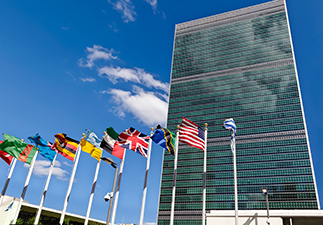What is the United Nations Convention Against Corruption (UNCAC)
The United Nations Convention against Corruption (UNCAC) is the only legally binding universal anti-corruption instrument. The vast majority of United Nations Member States are parties to the Convention.
Key areas of the Convention include preventive measures, criminalisation and law enforcement, international cooperation and asset recovery. The Convention covers many different forms of corruption including bribery, trading in influence, abuse of functions, and various acts of corruption in the private sector.
Prevention
While corruption can be prosecuted after the fact, the best approach is to prevent it from occurring. A chapter of the Convention is dedicated to prevention in both the public and private sectors, with preventive policies including:
- The establishment of anti-corruption bodies and greater transparency in political funding
- Applying anti-corruption safeguards to public services and public servants
- Promoting transparency and accountability in matters of public finance, e.g. judiciary and public procurement
- Raising public awareness of corruption
- Involving non-governmental and community-based organisations in the fight against corruption
Criminalisation
The Convention requires countries to make corruption a criminal offence, or in some instances to at least consider criminalising corruption (based on differences in domestic law). The Convention criminalises a wide range of corruption and related activity including:
- Bribery (domestic and bribery of foreign public officials)
- Embezzlement of public funds
- Trading in influence
- Laundering the proceeds of corruption
International Cooperation
Parties to the Convention have in essence agreed to cooperate with one another in every aspect of the fight against corruption, including:
- Prevention
- Investigation
- Prosecution
- Mutual Legal Assistance and Extradition
- Seizure and confiscation of proceeds of corruption
Asset Recovery
This is a particularly important issue for many developing countries where high-level corruption has plundered the national wealth, and where resources are badly needed for reconstruction and the rehabilitation of societies under new governments. It is necessary to reconcile the needs of countries seeking the illicit assets with the legal and procedural safeguards of the countries whose assistance is sought.
Several provisions specify how cooperation and assistance will be rendered:
- Embezzlement of public funds: the confiscated property would be returned to the state requesting it
- Proceeds of any other offence covered by the Convention: the property would be returned providing the proof of ownership or recognition of the damage caused to a requesting state
- All other cases: priority consideration would be given to the return of confiscated property to the requesting state or to the prior legitimate owners, or to compensation of the victims.


